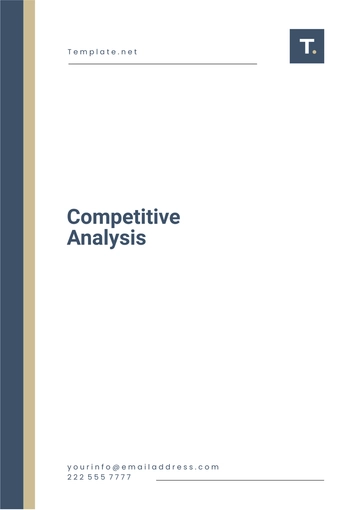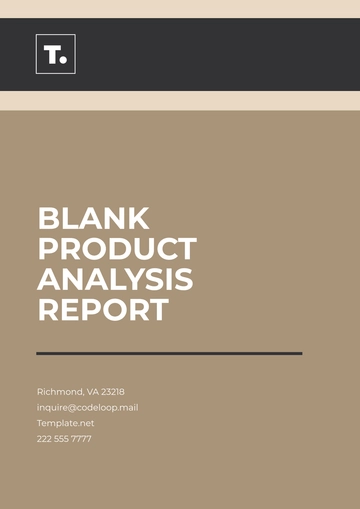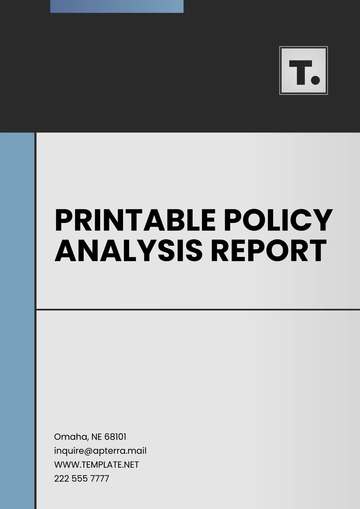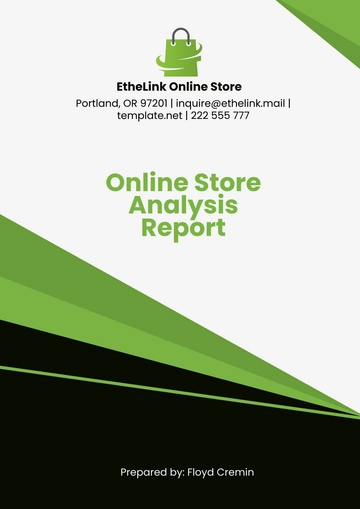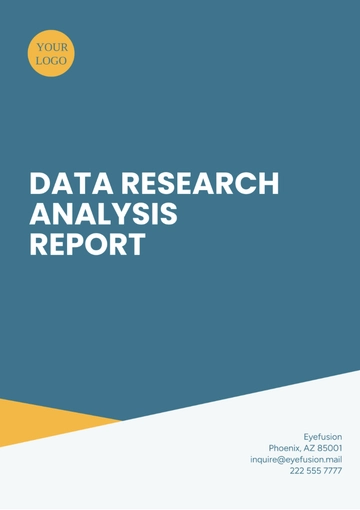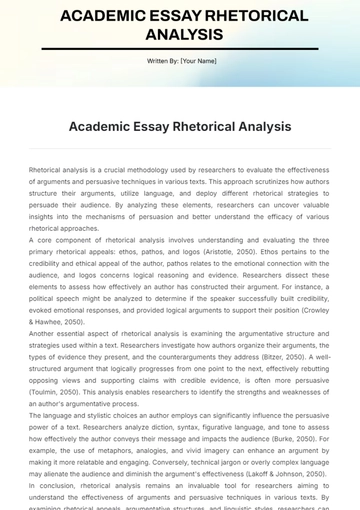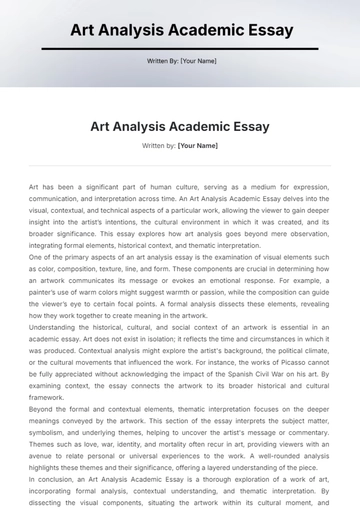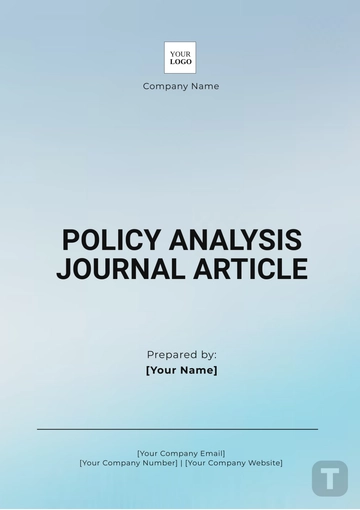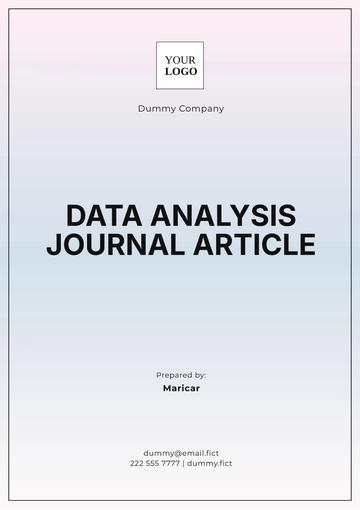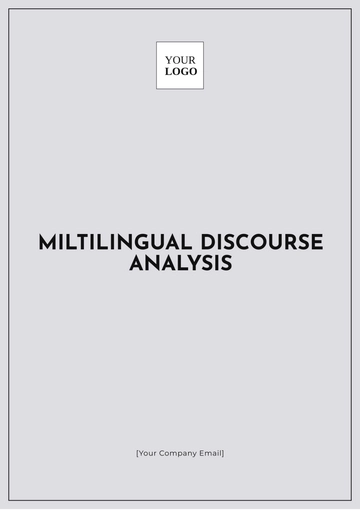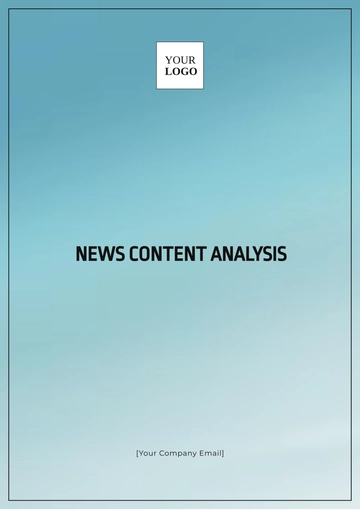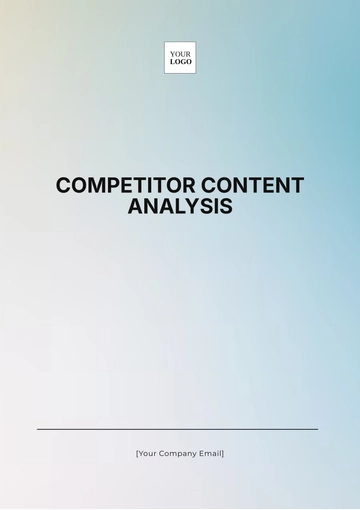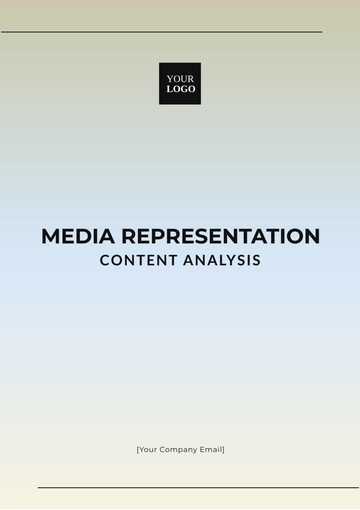Free Education Policy Analysis
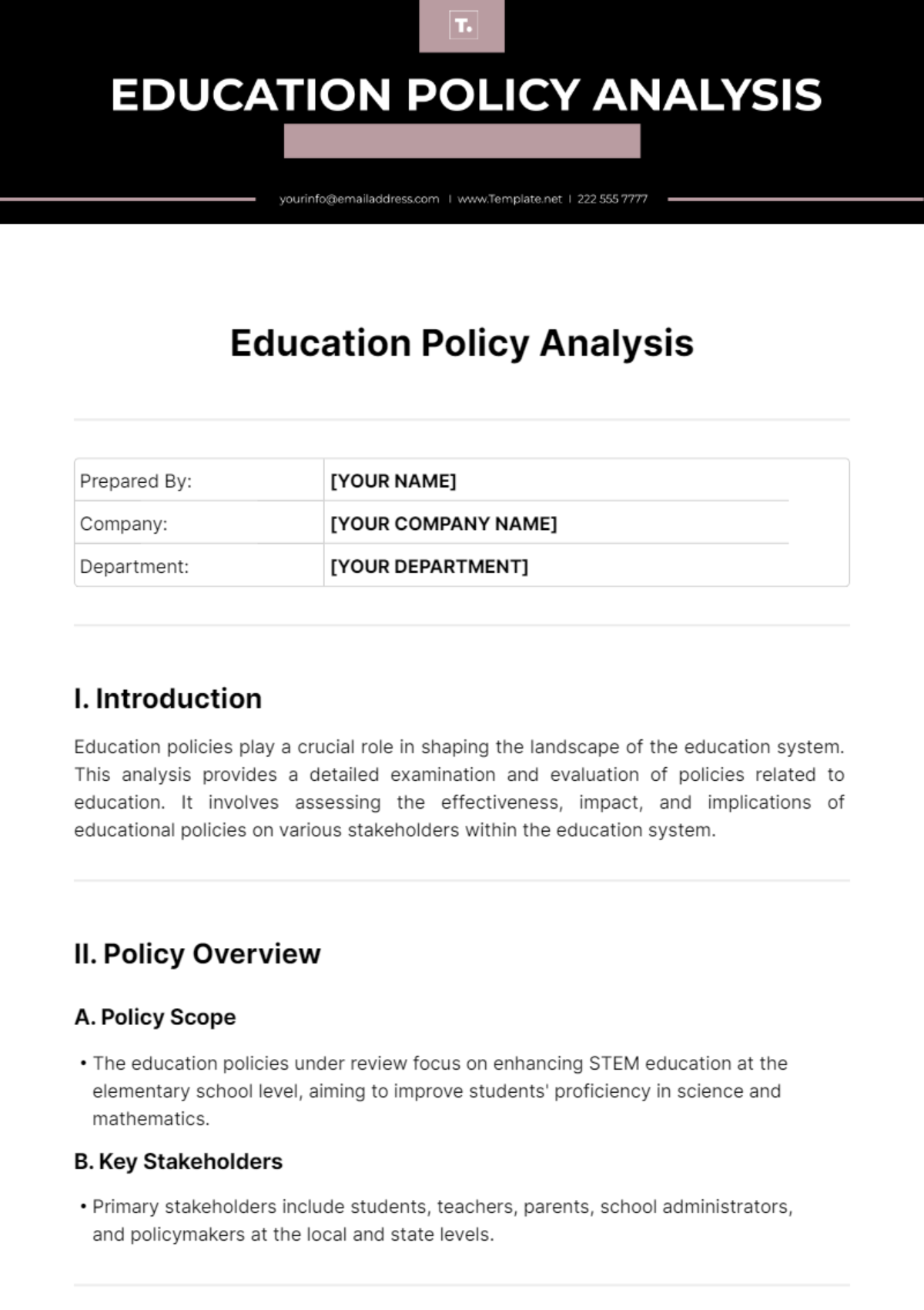
Prepared By: | [YOUR NAME] |
Company: | [YOUR COMPANY NAME] |
Department: | [YOUR DEPARTMENT] |
I. Introduction
Education policies play a crucial role in shaping the landscape of the education system. This analysis provides a detailed examination and evaluation of policies related to education. It involves assessing the effectiveness, impact, and implications of educational policies on various stakeholders within the education system.
II. Policy Overview
A. Policy Scope
The education policies under review focus on enhancing STEM education at the elementary school level, aiming to improve students' proficiency in science and mathematics.
B. Key Stakeholders
Primary stakeholders include students, teachers, parents, school administrators, and policymakers at the local and state levels.
III. Effectiveness Assessment
A. Policy Implementation
The implementation process faced challenges due to limited funding and resistance from some educators.
Professional development programs helped address implementation barriers and improve teacher buy-in.
B. Achievement of Objectives
While the policies led to increased emphasis on STEM subjects, the achievement of objectives varied across schools.
Schools with adequate resources and support saw significant improvements in student performance in science and mathematics assessments.
IV. Impact Analysis
A. Student Performance
Analysis of standardized test scores revealed a modest improvement in student performance in science and mathematics.
Increased engagement in hands-on STEM activities positively correlated with higher academic achievement.
B. Teacher Satisfaction
Teacher satisfaction remained mixed, with some educators feeling overwhelmed by the additional workload associated with implementing new STEM curricula.
Professional development opportunities tailored to STEM instruction contributed to higher levels of job satisfaction among participating teachers.
V. Implications for Stakeholders
A. Parents and Guardians
Parents expressed support for the emphasis on STEM education but raised concerns about equitable access to resources across schools.
Improved communication channels between schools and parents facilitated greater involvement in students' learning experiences.
B. Administrators
Education policies necessitated adjustments in budget allocations to support the purchase of STEM materials and training for teachers.
Collaborative efforts among administrators and educators were critical in aligning curriculum objectives with policy mandates.
VI. Conclusion
A. Summary of Findings
The analysis indicates that education policies aimed at enhancing STEM education have had a moderate impact on student performance and teacher satisfaction.
B. Recommendations
To further improve policy effectiveness, policymakers should prioritize equitable resource distribution and ongoing professional development for educators.
C. Future Considerations
Future research should explore longitudinal data to assess the long-term effects of STEM-focused education policies on student outcomes.
- 100% Customizable, free editor
- Access 1 Million+ Templates, photo’s & graphics
- Download or share as a template
- Click and replace photos, graphics, text, backgrounds
- Resize, crop, AI write & more
- Access advanced editor
Introducing the Education Policy Analysis Template from Template.net - your ultimate tool for streamlined policy assessment. This meticulously crafted template is not just editable, but fully customizable, ensuring seamless adaptation to your specific needs. Plus, it's effortlessly editable in our AI Editor too, guaranteeing efficiency and precision in every analysis. Unlock your policy potential today!
